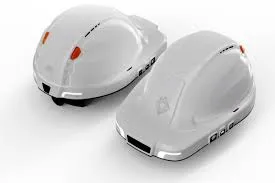safety helmet for special needs products
Safety Helmets for Special Needs Ensuring Protection and Enhancing Quality of Life
Individuals with special needs often face unique challenges that require tailored solutions to ensure their safety and well-being. Among these solutions, safety helmets play a crucial role, particularly for those with conditions that predispose them to head injuries. Whether due to medical conditions, behavioral issues, or mobility challenges, the importance of protective headgear cannot be underestimated. This article explores the significance of safety helmets for special needs individuals, the types available, and the considerations for choosing the right helmet.
The Importance of Safety Helmets
The primary function of a safety helmet is to protect the head from injuries resulting from falls or impacts. For many individuals with special needs, such as those with developmental disabilities, cerebral palsy, or epilepsy, the risk of falls and head injuries is heightened. Safety helmets can significantly reduce the likelihood of severe injuries during everyday activities, providing caregivers and family members with peace of mind.
In addition to physical protection, safety helmets can also enhance the quality of life for special needs individuals. By mitigating the risks associated with head injuries, these helmets enable users to engage more freely in various activities, including play, therapy, and social interactions. The added confidence that comes from wearing a safety helmet can encourage greater independence and participation in community life.
Types of Safety Helmets
Safety helmets for individuals with special needs come in various styles and designs, each tailored to meet specific requirements. Some common types include
1. Soft Shell Helmets These helmets are designed with soft, cushioned materials, making them lightweight and comfortable for everyday use. They are ideal for individuals who may be prone to falls but do not engage in high-impact activities.
2. Hard Shell Helmets Made from sturdy materials, hard shell helmets offer more robust protection for individuals involved in more vigorous activities, such as biking or skateboarding. They provide superior impact resistance and are often recommended for active special needs individuals.
3. Adjustable Helmets Many safety helmets for special needs are adjustable, allowing a customized fit for various head sizes. Proper fitting is essential for maximizing protection and ensuring comfort, making adjustable designs particularly advantageous.
safety helmet for special needs products

4. Behavioral Helmets For individuals with behavioral challenges that may lead to self-injurious behavior, specialized helmets are available. These helmets are designed to absorb impact and provide a barrier during incidents where the individual may hit their head against hard surfaces.
5. Custom Helmets Some companies offer customized helmet solutions tailored to the specific needs of individuals. This may include options for colors, patterns, and additional padding, allowing users to express their personality while staying safe.
Considerations for Choosing a Safety Helmet
When selecting a safety helmet for a special needs individual, several factors should be considered to ensure the best fit and protection
1. Individual Needs Assess the specific challenges faced by the individual, including their behavior patterns, activity level, and any medical conditions. This information will guide the selection of the most appropriate helmet type.
2. Sizing and Fit A helmet that does not fit properly cannot provide adequate protection. It is crucial to measure the head circumference and choose a helmet that allows for adjustability to achieve a snug yet comfortable fit.
3. Material and Design Look for helmets made from high-quality materials that provide durability and comfort. Breathable materials can also improve wearability, especially for individuals who may have sensory sensitivities.
4. Consultation with Professionals It can be beneficial to consult with healthcare providers, occupational therapists, or specialists in special needs equipment. They can offer valuable insights into the best options for individual circumstances.
5. Budget Considerations Safety helmets come at various price points. While it is important to find a helmet that fits the budget, safety should always come first. Investing in a quality product is vital for the well-being of the individual.
In conclusion, safety helmets play an essential role in safeguarding the well-being of individuals with special needs. By understanding the different helmet types, their importance, and the considerations for selection, caregivers can make informed decisions that promote both safety and quality of life. Ensuring proper protection allows individuals with special needs to engage more fully in their communities, enriching their lives and those around them.
-
Aero Safety Helmet - OEM Gomax Aero Adult Safety Helmet, Affordable Protection for Cyclists
NewsJun.10,2025
-
Buy uvex pheos abs alpine safety helmet – OEM & Cheap Options from China Supplier
NewsJun.10,2025
-
Volman Safety Helmet - Premium Durable Protection for Industrial Workers
NewsJun.10,2025
-
Top Safety Helmet Suppliers in UAE Reliable Brands & Affordability
NewsJun.10,2025
-
Affordable Safety Helmet with Visor & Earmuffs - OEM China Supply
NewsJun.10,2025
-
Affordable Safety Clothing in Deer Park, TX Cheap & OEM Options
NewsJun.09,2025
